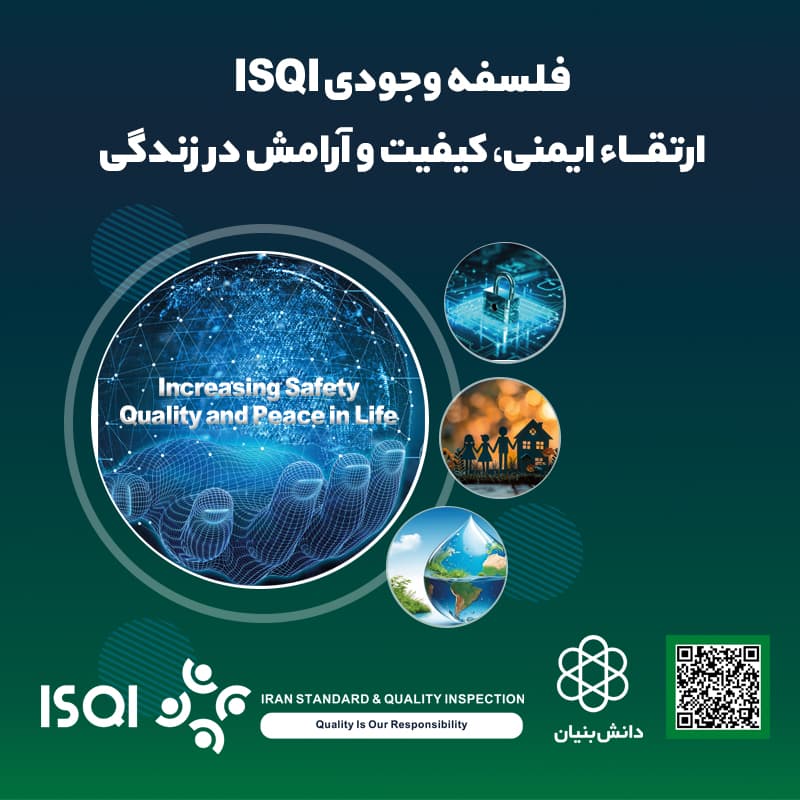Monitoring, inspection and control are done in order to improve performance and achieve effective management. The existence of a coordinated and compatible monitoring system with the conditions of relevant institutions has always been desired by effective and successful organizations. Achieving such a monitoring system requires the use of scientific inspection methods and methods using a systematic and structured tool. In fact, the inspector should be considered as a researcher and consider the inspection process to obtain reliable answers and consider the inspection based on the scientific principles of report writing, clarification and accuracy in preparing reports. Based on this, Iran Quality and Standard Inspection Company conducts pre-shipment inspection of PSI or inspection and issuance of IC standard certificate at the destination, by experienced inspectors, and the specialized team of this company acts as the inspector of the central bank of the Islamic Republic of Iran, in all the customs of origin. And the destination is ready to provide services.
According to the requirements of the Central Bank of the Islamic Republic of Iran, all imported goods subject to credit documents must be evaluated by inspection companies.
Most of the products related to oil, gas and petrochemical industry manufacturers such as pipes, fittings, flanges, bolts and nuts, valves, pumps and all kinds of electrical equipment and instruments are usually inspected in a final and pre-shipment manner. Inspection certificate or assurance certificate (goods inspection) is a document issued by one of the international inspection companies.
In international trade where the trading parties reside in different countries and in most transactions goods are loaded and transported from a third country, the inspection may start from the time of packing and continue during packing until the time of loading for transportation to the destination, but usually the inspection It is made from ready-to-issue packages, and then certification is standardized.
In paragraph 2 of the standard general conditions in international inspections approved by IFIA, the inspection is defined as follows:
Inspection means conducting review, examination, testing, sampling, measurement and similar operations and issuing reports and certificates related to these operations, as well as providing consulting services related to these issues.
Definition of preshipment inspection or (PRESHIPMENT INSPECTION) PSI
Pre-shipment inspection was formally introduced in 1994 as an agreement to improve international trade standards under the General Agreement on Tariffs and Trade (GATT), which was later replaced by the World Trade Organization (WTO). In general, the pre-shipment inspection (PSI) operation is usually done before or during loading by an independent inspection institution trusted by the buyer. The reason for the independence of the inspection company is that in commercial transactions that are carried out through letters of credit, the condition of ensuring the fulfillment of the obligations of the seller and the buyer is very fundamental, in other words, each of the parties to the transaction must be sure that if they fulfill their obligations, the party He will also fulfill his obligations.
Pre-shipment inspection in order to confirm the compliance of the goods with the purchase order, contractual and standard requirements includes one or a number of the following items.
Quantitative or qualitative inspection of goods
Inspection of packaging status and cargo marking
Inspection of containers and other means of transportation
Monitoring the loading or unloading of goods
Sampling
Laboratory analysis or related tests
It should be noted that pre-shipment inspection is one of the links in the international trade chain. In fact, the duty of the inspector in the field of pre-shipment inspection is not to inspect the product according to the mentioned documents; In other words, it should verify the product according to the customer’s requirements and ensure that the ordered product meets all the customer’s requirements. In fact, customer requirements have a higher priority than standard requirements. Of course, customer requirements usually include a series of standard requirements.
What are the objectives of pre-shipment inspection?
Checks the quantity and quality of goods.
Inspects products for any defects.
Ensuring product compliance with the safety requirements of the destination market
Issuing reports for import and invoicing of goods
In general, pre-shipment inspection activities include all measures related to checking the quantity, quality, price, exchange rate and financial conditions, or customs classification of goods exported to the territory of the user country, provided that the customs measures The country from which the goods were exported.
Inspection at DESTINATION INSPECTION
This type of inspection is done at the destination and is generally done to carry out customs formalities and bank instructions in order to ensure the availability of the goods to the extent stated in the commercial documents. Generally, the type of inspection is quantitative.
Briefly, pre-shipment inspection includes the following:
Review of purchase documents
Review of quality control documents and product inspection (for product compliance with standards and orders)
Visual inspection of the product and its components
Quantitative inspection
Checking the packing list
Inspection of product packaging
Inspection during loading
Issuance of clearance certificate or inspection certificate
Authorities:
Shahram Hashirbaf
Phone Call:
021-43904214







